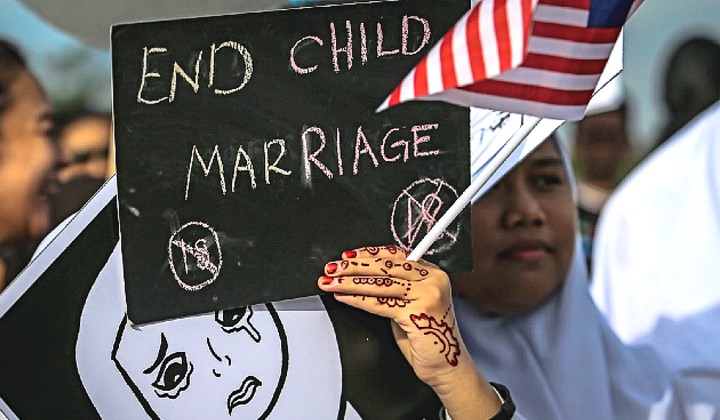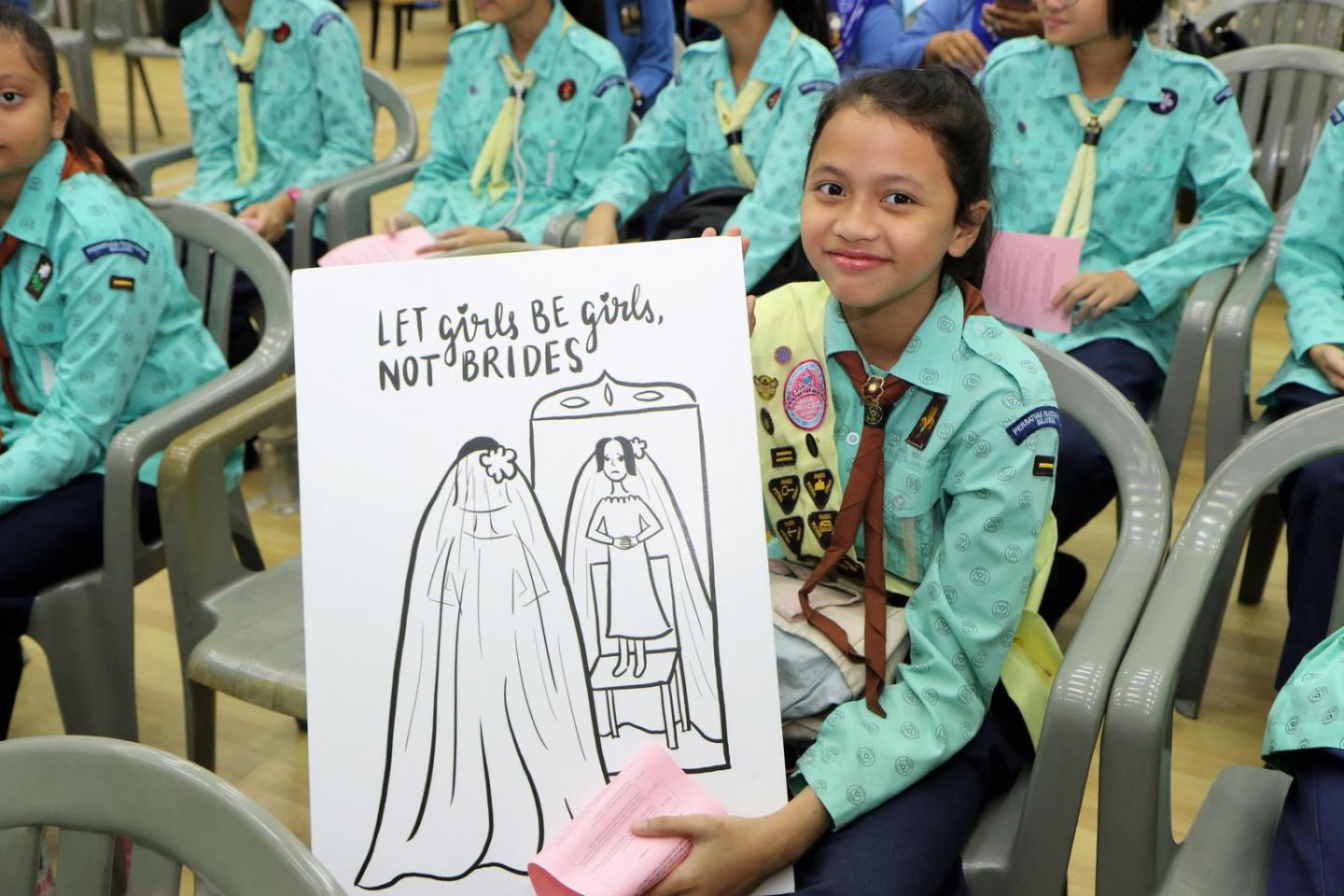
Ending child marriage: Crucial step to curb teenage pregnancies and safeguard Malaysia’s future
By Sisters in Islam

THE inclusion of the Reproductive and Social Health Education (PEERS) module in Malaysia’s school curriculum is a long-overdue step forward in addressing teenage pregnancies.
However, waiting until 2027 to implement it in the school curriculum may be too late.
Datuk Seri Nancy Shukri highlighted concerns over teenage pregnancies, underage marriage, and baby abandonment, citing 44,263 teenage pregnancies in the past five years, with 17,646 among unmarried teens.
In Sarawak, 9,258 cases were reported from 2019 to 2023, partly due to customary laws allowing underage marriage. No amendment has been made to raise the minimum marriage age for girls to 18.
The issue is not about whether pregnancies occur within or outside of wedlock, it is about the alarming rate of teenage pregnancies and the vulnerabilities faced by the girls.
To tackle this issue effectively and uphold the rights of young Malaysians, the country must adopt a holistic approach that includes a complete ban on child marriage.
In Malaysia, there are several provisions within the Islamic laws which inadvertently may necessitate the child bride or her parent to choose marriage rather than other alternatives, often under the guise of “social protection.”
This practice not only endangers young girls but also undermines Malaysia’s commitment to safeguarding children’s welfare.
Persistent violation of children’s rights in Malaysia
Child marriage remains a glaring issue in Malaysia, highlighting a critical inconsistency in our legal protections.
While the minimum marriage age for non-Muslims is set at 18, for Muslims, it stands at 18 for men and 16 for women – with further allowances for even younger marriages if approved by a chief minister or Syariah judge.
This discrepancy allows for the exploitation of legal loopholes and leaves young girls vulnerable to early, often coerced marriage.
Child marriage is not just a legal flaw; it is a direct affront to children’s rights, perpetuating cycles of poverty and hindering Malaysia’s progress as a nation that respects and protects its youth.

(Pic credit: UNICEF)
Ineffectiveness of current measures
Malaysia has made commitments on paper, but the ground reality tells a different story.
Despite the 2020 launch of the National Strategic Plan to Address the Causes of Underage Marriage, aimed at combating poverty, lack of education, and harmful social norms, the country has seen little to no tangible impact.
This is especially apparent in rural areas where families, struggling with financial hardship, see marriage as a solution to poverty, putting girls at risk of early pregnancy and lifelong consequences.
Despite Malaysia’s commitment to ending child marriage by 2030 as part of the Sustainable Development Goals (SDGs), without decisive, legally binding action, these promises are hollow.
While states like Selangor and Kedah have raised the minimum marriage age to 18, these isolated efforts must be extended nationwide.
It is unacceptable that a child in one state can be protected, while another child, due to geographical location, remains vulnerable to exploitation under outdated and harmful legal exceptions.
Real costs of child marriage
Child marriage is not merely a personal or cultural issue; it has severe, wide-reaching consequences for society at large. The practice contributes directly to:
Ineffectiveness of current measures
Malaysia has made commitments on paper, but the ground reality tells a different story.
Despite the 2020 launch of the National Strategic Plan to Address the Causes of Underage Marriage, aimed at combating poverty, lack of education, and harmful social norms, the country has seen little to no tangible impact.
This is especially apparent in rural areas where families, struggling with financial hardship, see marriage as a solution to poverty, putting girls at risk of early pregnancy and lifelong consequences.
Despite Malaysia’s commitment to ending child marriage by 2030 as part of the Sustainable Development Goals (SDGs), without decisive, legally binding action, these promises are hollow.
While states like Selangor and Kedah have raised the minimum marriage age to 18, these isolated efforts must be extended nationwide.
It is unacceptable that a child in one state can be protected, while another child, due to geographical location, remains vulnerable to exploitation under outdated and harmful legal exceptions.
Real costs of child marriage
Child marriage is not merely a personal or cultural issue; it has severe, wide-reaching consequences for society at large. The practice contributes directly to:
- Health risks: Malaysia’s hospitals have documented higher maternal and infant mortality rates among young mothers. These young girls’ bodies are often not prepared for childbirth, leading to life-threatening complications such as obstructed labour, preterm birth, and higher rates of maternal and infant mortality. Cases of girls as young as 12 or 13 forced into motherhood are a tragic reality that cannot be ignored.
- Educational disruption: Early marriage nearly always leads to a complete halt in a young girl’s education. Deputy Education Minister Lim Hui Ying reported that data from the ministry’s Student Database Application System (ADPM) indicates a rise in student dropout rates from 2019 to 2023, primarily one of the issues is marriage. Supporting this, State Education, Higher Learning, and Human Resources committee chairman Ahmad Saidi Mohamad Daud highlighted underage marriage as a significant factor contributing to student dropouts in Perak, further highlighting the impact of social factors on education continuity. In a competitive global economy, Malaysia cannot afford to have generations of girls sidelined from achieving their potential. This practice deprives young girls of future opportunities, trapping them and future generations in cycles of poverty.
- Psychological and social impact: Girls forced into marriage are vulnerable to severe psychological distress, including depression and anxiety, as they grapple with the responsibilities of marriage and motherhood. The social isolation and lifelong trauma associated with child marriage have ripple effects, harming not just the individual but families and communities.
Malaysia must fulfil its commitments to children
Malaysia cannot claim to be a champion for children’s rights if it continues to permit child marriage.
The government has the power – and responsibility – to protect its youth, particularly vulnerable young girls, from harmful practices.
Without a firm, unified stance on ending child marriage, Malaysia risks failing its commitments to its children and to international human rights standards.
It is time for Malaysia to take decisive action, moving beyond partial reforms and isolated efforts.
Only by standardising marriage laws, expanding educational programs, actively engaging communities, and providing crucial support services can we build a future where every child is protected.
By committing to these changes, Malaysia will be upholding children’s rights and setting a firm foundation for a more equitable and prosperous society. – Nov 12, 2024
Sisters in Islam is a non-governmental organisation working towards advancing the rights of Muslim women in Malaysia within the framework of Islam, universal human rights principles, constitutional guarantees, as well as the lived realities and experiences of women.
No comments:
Post a Comment